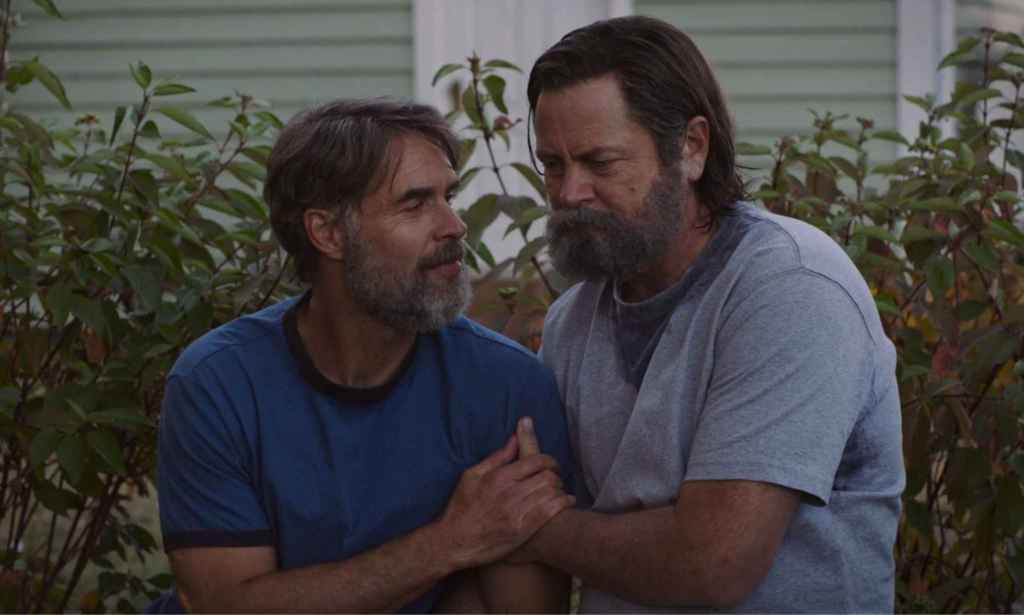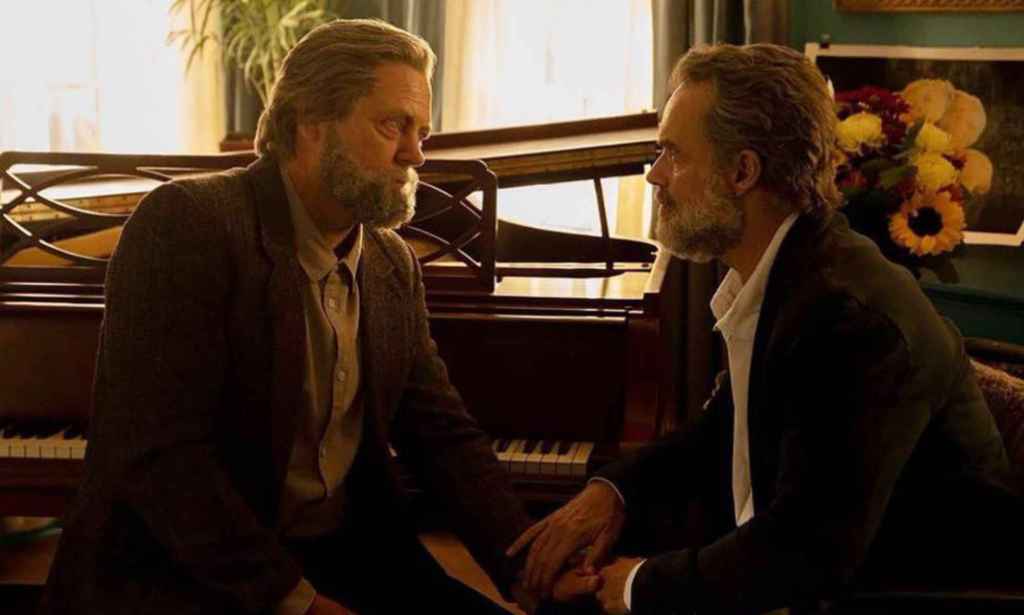Gamers reflect on The Last of Us giving Bill and Frank the love story they deserve: ‘I was emotional for hours’

For LGBTQ+ gamers, Bill and Frank’s relationship in The Last of Us is extra special. (HBO)
For less perceptive gamers, the staggering love story between Bill (Nick Offerman) and Frank (Murray Bartlett) during episode three of HBO’s The Last of Us came as a bit of a shock.
The 80-minute instalment of the post apocalyptic saga was a deviation from how the pair are portrayed in the 2013 game of the same name, where Frank’s character is never properly introduced, and their romance is characterised by a few blink-and-you’ll-miss-it moments.
But for many queer gamers, that barely-there relationship mattered.
“Games have come a long way since 2013, but it was nice to have that small amount of representation, that glimmer of representation,” says Matt Hardwick, the co-founder of queer gaming group London Gaymers.
Hardwick, 35, purchased The Last of Us on the day it was released, and picked up on Bill and Frank’s relationship “straight away”. While that sliver of representation mattered to him personally, he’s also heard stories of gay men entering the gaming industry because of it, as they had seen themselves represented in a game for the first time.
Ten years later, and that subtle relationship has blossomed into a queer romance epic for the ages, with fans and critics already hailing it one of the TV moments of the decade. Seeing Bill and Frank’s evolution is, for many LGBTQ+ gamers, special.
“I was quite emotional for a good couple of hours after watching it,” Hardwick says, stating that the “groundbreaking” TV iteration of Bill and Frank’s story was better than the game’s portrayal “in every way possible”.

“A lot of representation in television and games, it’s always very tropey, there’s always a lot of trauma,” he says. “It’s not to say [Bill and Frank] weren’t going through trauma, because you know… it’s the apocalypse. But it wasn’t about getting gay-bashed, it wasn’t about AIDS, it wasn’t about an awful coming out story.
“It was nice to have something that was just about two people that were in love, rather than this story about queer trauma,” he adds.
Jon Franklin, a 36-year-old social media manager, agrees that The Last of Us as a game was seminal in its portrayal of queer characters.
In The Last of Us II, players see main character Ellie come out as LGBTQ+, and Jon thinks it’s “one of the first major games that really addresses the struggle”.
“That’s what makes it unique,” he says. “You don’t really get that in many other games.”
However, Jon thinks that Bill and Frank’s relationship in the game fell foul to the “Bert and Ernie” effect, whereby anyone who wants to ignore their queerness can do, because it’s only alluded to. He’s pleased to see that with the TV series, that ambiguity is blown apart.
“I thought it was great to see,” he says. “It was a great representation of, actually quite a healthy relationship, all things considered. It was a very typical relationship.”
Despite the world’s end raging in the background, Bill and Frank still manage to fight over how their garden looks, tend to an allotment, and enjoy dinner and wine out in the sun.
“The relationship between Bill and Frank felt real and relatable and I was so pleased with the angle they chose [in the series],” says Matt Mather, 28, who started playing The Last of Us a few years back.
In the game, Frank is only seen after he has taken his life, and he does so to escape Bill’s unbearable paranoia. The final moments of episode three of the TV series however, tinged with golden hour sun and set to one of history’s most emotive pieces of music, Max Richter’s “On the Nature of Daylight”, are a marked departure from the game’s portrayal.
“As Bill said at the end of the episode, this wasn’t a tragedy,” Mather adds. “They had a happy ending. I feel like LGBTQ+ characters are so often killed off for shock value or they have these really tragic ends to their stories. While Bill and Frank’s ending was undeniably sad, it was happy too.”
In addition to showcasing an ordinary relationship in entirely extraordinary circumstances, queer gamers are particularly praising HBO’s portrayal of queer elders in love.
“It was nice to see that they were just normal people, a little bit older as well,” says James, a 37-year-old HR professional and member of queer gaming group Gaymers iNC.

“A lot of our shows represent everybody as supermodels at the moment. It was nice to see a few more real people having fulfilling relationships, James adds. “They’re represented exactly the same way you would represent a heterosexual relationship.”
This is true, but the fact that Bill and Frank are gay remains a critical point for queer gamers. Many corners of the gaming community are still worryingly homophobic; following its premiere, episode three of The Last of Us was review-bombed by bigoted gamers intent on disavowing the series for “going woke”.
Meanwhile, nine in ten openly queer gamers have experienced abuse or harassment, according to one study.
Sam, an ambassador for the LGBTQ+ young people’s charity Just Like Us, has witnessed this homophobia first-hand, and feels that there is a general “negative attitude” towards LGBTQ+ people in the gaming world.
“Usually when a queer character is announced, you’ll see people complaining that it’s only done to ‘be woke’ or ‘push a political agenda’,” he says.
It’s upsetting, of course, but Sam thinks that tides could be changing.
“I think that LGBTQ+ representation in video games has certainly come a long way since the ‘80s and ‘90s. The queer community appear as fully fleshed out characters and not just as villains or the usual negative stereotypes,” Sam says, adding that The Last of Us game was one of the first to champion LGBTQ+ characters.
“I’d love to see more video game protagonists representing the length and breadth of the LGBTQ+ community, and I feel like the popularity of The Last of Us show will help.
“The Last of Us sends the message that it’s 2023 and LGBTQ+ people are everywhere,” he adds.
“You’ll see us appear in your favourite franchises, often with leading roles. Us simply existing isn’t a political statement. It’s simply who we are.”
The Last of Us continues Sunday on HBO in the US (9pm ET) and on Monday in the UK (2am/9pm GMT) via Sky Atlantic and NOW TV.

